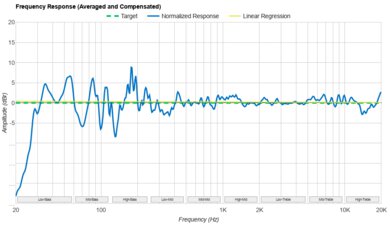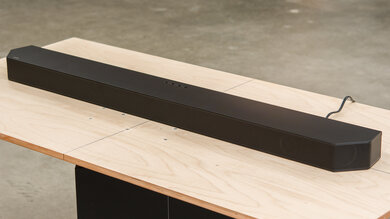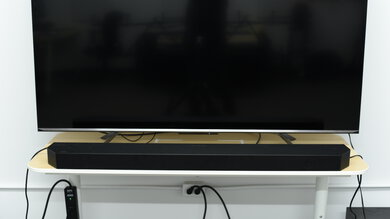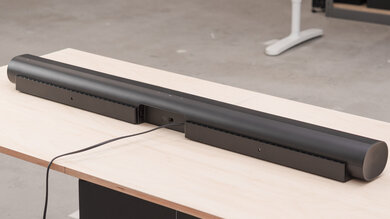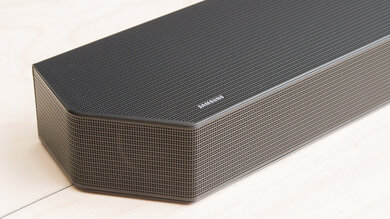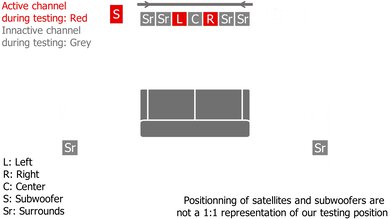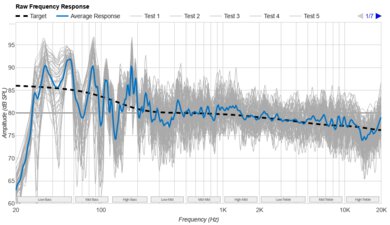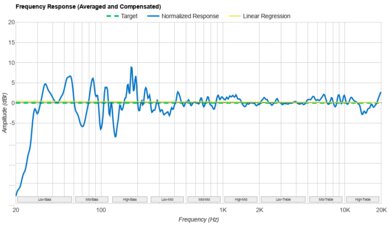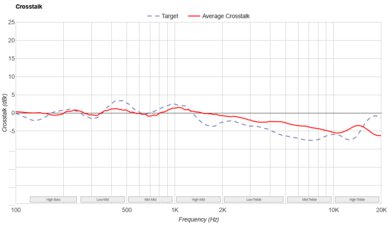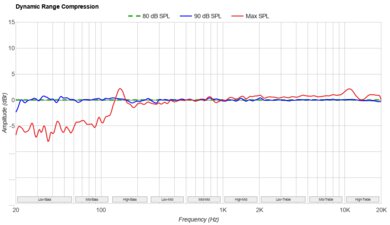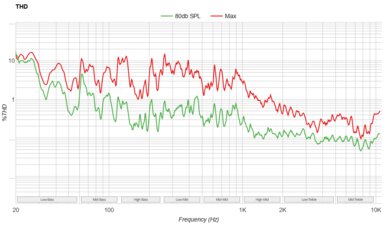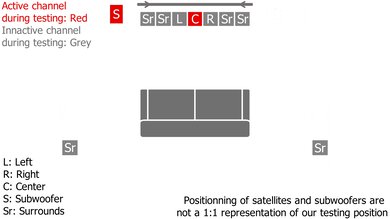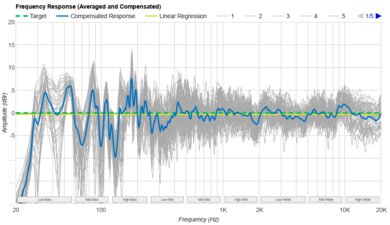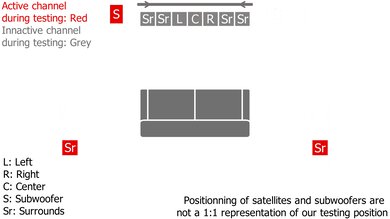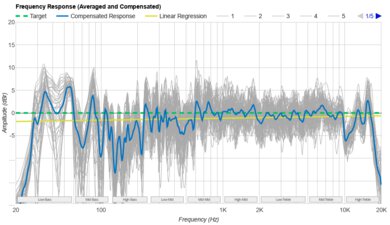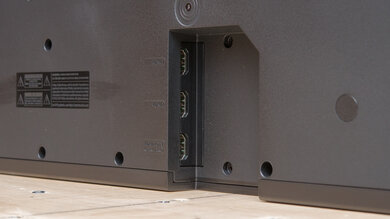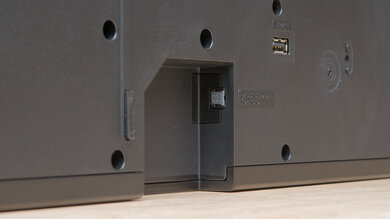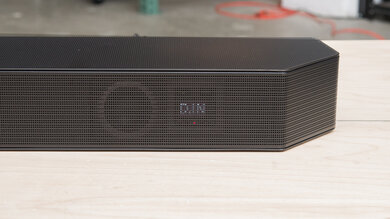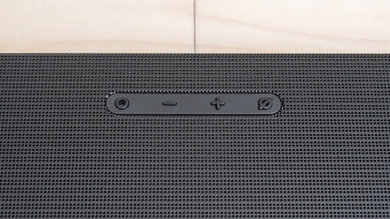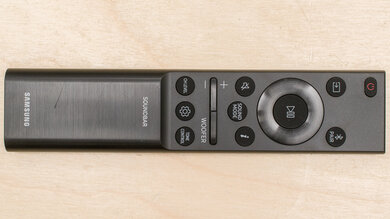Our Verdict
Okay for mixed usage. The Yamaha ATS-1080 has an okay audio reproduction that will be suitable for most music genres and dialogue content like podcasts and audiobooks. However, its bass isn't extended, which won't be great for movies and bass-heavy music. It also has sub-par performance with surround channels and doesn’t support height channels, resulting in a less immersive listening experience. Also, its soundstage isn’t that wide, and it will downmix 5.1 surround content down to stereo.
- Good connectivity options.
- Decent for dialogue-oriented content.
- Performs well at max volume.
- Cheap fabric-covered design.
- Lacks sub-bass.
- Downmixes surround content to stereo.
Passable for dialogue and TV shows. The Yamaha YAS-108 has a good mid-range performance, which results in accurate voices, but its overall sound profile is dark as it lacks detail in the treble range. It will get loud enough for most content and you’ll be able to easily stream podcasts and audiobooks via Bluetooth. The bar also has a dialogue enhancement feature to help make dialogue clearer, even at lower volumes.
Okay for music. The Yamaha ATS1080 doesn’t have the best bass performance as it lacks a lot of sub-bass, meaning it won’t be great for bass-heavy music. Its overall sound profile is also fairly dark and the soundstage is narrow. On the upside, it gets loud and performs quite well at max volume, and you’ll be able to play music via Bluetooth with your smart device, but you won’t be able to EQ the sound to your liking.
Mediocre for movies. The Yamaha YAS-108 has a decent overall audio reproduction, but it doesn’t do well with surround channels. On top of that, the soundstage isn’t that wide and the bar doesn’t have height channels and doesn’t support Atmos. All of this will result in a less immersive listening experience. This 2.2 setup will downmix 5.1 content and won’t sound as real as other high-end setups. You can use its surround mode to help a bit, but the audio quality won’t be the greatest.
Changelog
- Updated Dec 04, 2023: Added market comparison with the Yamaha ATS-1090 in the Voice Assistants Support box.
- Updated Dec 10, 2021: Added third-party voice assistant compatibility.
- Updated Apr 01, 2021: Converted to Test Bench 1.0.
- Updated Sep 27, 2019: Review published.
Check Price
Popular Soundbar Comparisons
The Yamaha ATS-1080 is a unique soundbar that has two built-in subwoofers, which results in a fairly dark sound profile. However, it doesn't have the good bass performance of a dedicated subwoofer like other budget soundbars. See our recommendations for the best soundbars, the best budget soundbars, and the best soundbars with a subwoofer.
The Yamaha YAS-109 is the next generation of the Yamaha YAS-108/ATS-1080. The YAS-109 has an Ethernet port instead of an AUX port, it supports wireless playback via Wi-Fi, and it also has EQ presets. However, the YAS-108 can get a bit louder with fewer compression artifacts.
The Sonos Beam is a slightly better-performing soundbar than the Yamaha YAS-108/ATS-1080. The Sonos has a more extended bass, feels better built, and offers more sound enhancement features. On the other hand, the Yamaha has more connectivity options, including a Full HDMI In port. The Yamaha also has Bluetooth playback, while the Sonos can only connect via Wi-Fi or Apple AirPlay.
The Yamaha YAS-108/ATS-1080 has been discontinued, but its performance is similar to that of the Yamaha ATS-1090. They're both 2.2 soundbars with similar designs. The 1080 brings a little more bass, and it gets louder. However, it doesn't support Alexa or Wi-Fi connectivity like the 1090.
The Yamaha YAS-207 is a better soundbar than the Yamaha YAS-108/ATS-1080. It has a separate subwoofer instead of the two built-in subs the ATS-1080 has, which results in better overall bass performance. Also, the rest of the frequency response is noticeably more accurate. Both bars have the same inputs, connectivity options, and app.
Test Results

